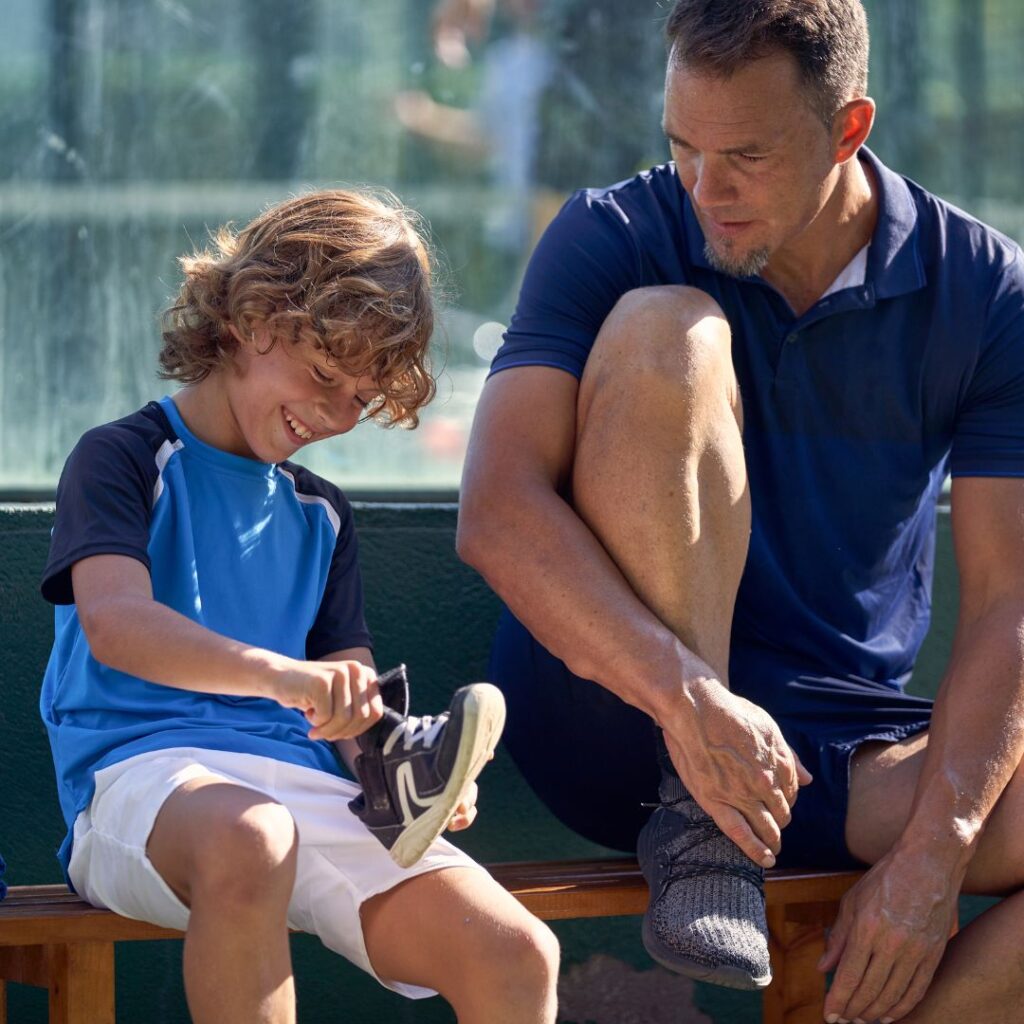How To Set Boundaries When You And Your Child Love The Same Sport
So, I received this DM last week from Kristi. I don’t have a ton of personal experience to draw on to answer this question. My family referred to me as the ‘fun sucker’ as I could turn a fun day at the park into a basketball lesson faster than you can say ‘follow through.’ Needless to say, none of my girls pursued my sport.
So I asked a few of my go-to experts—sports psychologist Dr. Sam Maniar from Center for Peak Performance. Dr. Sam has extensive experience helping athletes, executives, and organizations achieve peak performance. He has worked with elite and youth athletes as well as professional and collegiate teams and executives. Kirsten Jones is a performance coach and the author of Raising Empowered Athletes, a book to help parents raise happy, brave, and resilient kids. Jones is a former Nike Executive and D1 volleyball player.
Dr. Sam believes balance and moderation are crucial and points out that even sports have better outcomes with multi-sport athletes. And he suggests she take that one step further. “I would encourage her to find other topics/interests/hobbies to discuss…and find fringe ways to connect to the sport that also extend to life—for example, discussing a soccer player who stands up for social justice or someone who is raising money for a cause. Or equal pay for female athletes.
Kirsten says she had to step back from her then 14-year-old daughters’ volleyball experience because it felt like too much. “Since I was a former D1 volleyball player. I didn’t want her to feel pressured, so I kept my heart and head busy working on my book and with clients. I’m not saying it was easy! I wanted to support her, but it’s her journey, not mine. In doing so, three years later, I was even on the sidelines coaching her team, and she did not mind it but welcomed it (mostly).” Kirsten says to give space, allow and encourage others to coach them and find something completely unrelated to sports you enjoy doing together or something new to both of you, such as playing the guitar, cooking, or watching action flicks. Find times when you do something together where the sport isn’t mentioned.
Deion Sanders has a parent-to-coach ritual every game day with his QB son, Shedeur Sanders. They walk to the goal line and back. On the way there, Deion talks to him as his son, and when they make the turn to come back, he becomes his coach for the next three and a half hours.
Here are some specific strategies that parents can implement to set clear boundaries:
- Define and Communicate Boundaries: Make it clear when you are wearing your “coach” hat and when you are wearing your “parent” hat. For instance, during practice or game time, you are the coach, and your child is just another player on the team. At home, you are the parent, and conversations about the sport should be limited and not override other aspects of your parent-child relationship.
- Seek Feedback and Adjust: Regularly check in with your child to see how they feel about the current arrangement. Do they feel pressured? Are they still enjoying the sport? Use this feedback to adjust how you interact with your child in your dual roles.
- Separate Performance from Worth: As a coach and parent, it’s important to ensure that your child knows that their performance in the sport does not determine their worth in your eyes. They need to know that you love and value them for who they are, not just for their accomplishments on the field.
- Involve Other Coaches: Having another coach present during practices and games can help maintain objectivity. This coach can offer unbiased feedback and guidance, helping to eliminate potential favoritism or over-criticism.
This mom and daughter are fortunate to have a shared love of their sport, and it’s good to be self-aware enough to recognize the potential for a problem down the line. When my kids were young, I couldn’t imagine a day would come when they didn’t love their sport or that they would find other interests and passions they cared so deeply about. But it does happen. My ‘I want to play water polo in the Olympics’ child hasn’t swam a lap in a pool in five years. And my soccer star is now only found on a volleyball court. There could come a time when the child stops playing, either because they want to try something new, are burnt out, or are injured. So, it’s important our kids know that the relationship and the connection aren’t built on this one shared experience.
More articles you might like:
How can we empower our girls through sports?
This one exercise will make you run faster, jump higher, and become more agile.
